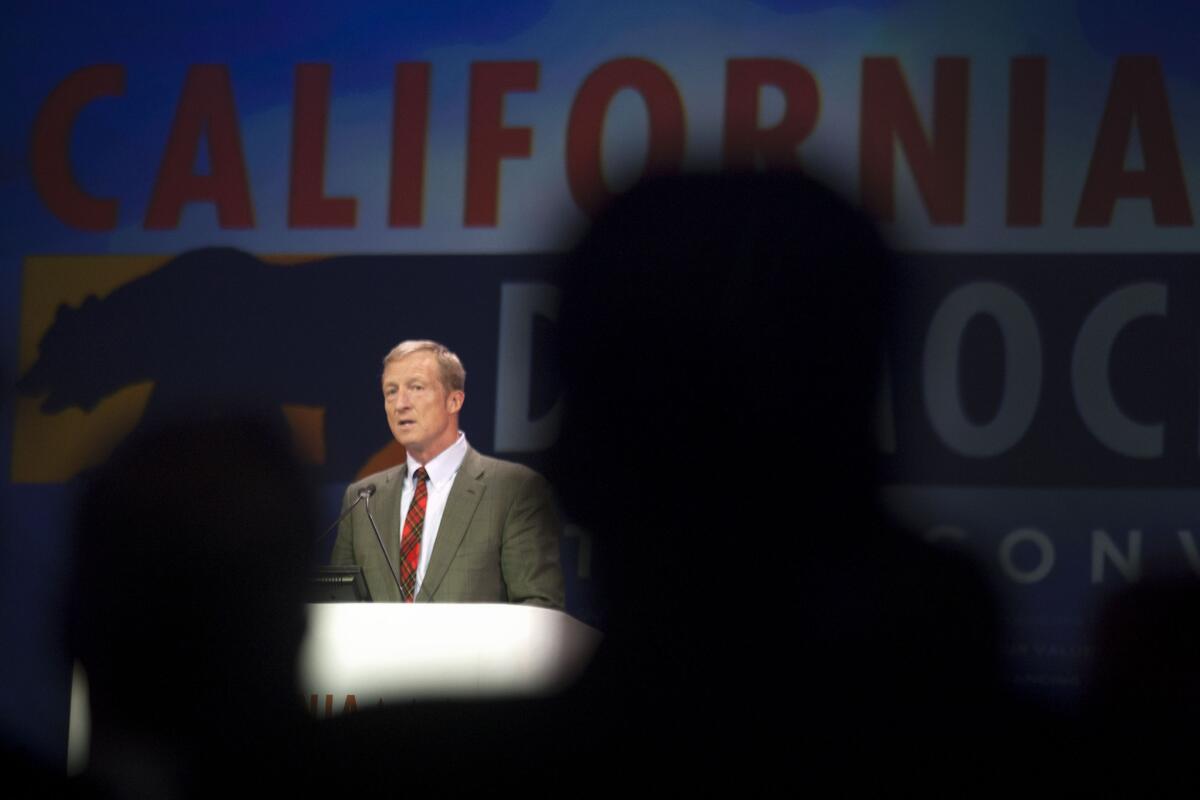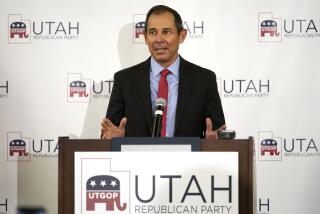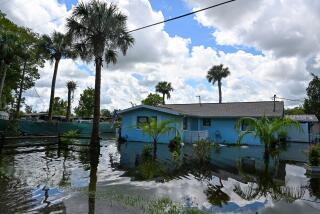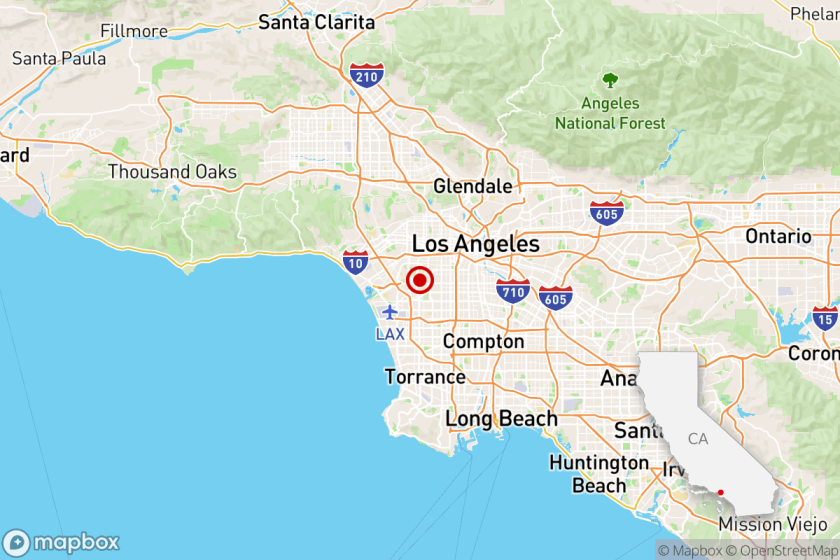Climate change a wedge issue in 2014? Billionaire Tom Steyer hopes so

One of President Obama’s wealthiest supporters is pledging to spend at least $50 million in a bid to make climate change the central issue in hotly contested elections in New Hampshire, Florida, Michigan and a handful of other battleground states.
A group run by California billionaire Tom Steyer unveiled plans to aggressively target Republicans in seven states who have been skeptics of global warming. Among the political figures the group plans to target is Florida Gov. Rick Scott and former Massachusetts Sen. Scott Brown, who hopes to win a Senate seat from New Hampshire.
The group plans to spend at least $100 million – half of it Steyer’s money, the rest raised from other environmentalists – on campaigns that will include micro-targeting voters, branding climate skeptics as deniers of basic science and highlighting the hardships climate change is already causing.
“We are not going to be talking about polar bears and butterflies,” said Chris Lehane, Steyer’s lead political strategist. “We are going to be talking about how this issue of climate impacts people in their backyards, in their states, in their communities.”
Steyer, who has emerged as a liberal counterpoint to the conservative Koch brothers, has been working aggressively over the last few years to make climate change – long an abstraction in campaigns – a pivotal issue on which elections can be won or lost. His advisors argue there are legions of voters who can be motivated to come to the polls on the matter, despite surveys that have shown climate change to be a relatively low priority for most Americans.
Steyer’s group, NextGen Climate, will probably represent the largest independent spending by liberals in the election. Its effort, though, is expected to be dwarfed by that of the Kochs, whose organization, Americans for Prosperity, has poured millions of dollars already into races around the country, mostly focused on attacking President Obama’s healthcare law.
NextGen’s plan suggests Steyer’s political reach is growing. Until now, the billionaire has kept his campaign activities narrowly focused. Last year, he spent more than $8 million to help Democrat Terry McAuliffe win his campaign for governor of Virginia against former Atty. Gen. Ken Cuccinelli, a Republican who had been long despised by climate change activists.
Steyer also inserted himself into the Senate race in Massachusetts, attacking one candidate’s support for the Keystone pipeline.
But Steyer’s most notable victories have not been in battleground-state gubernatorial or congressional campaigns but in ballot initiatives in California. He bankrolled a successful effort in 2012 to persuade Californians to raise taxes on out-of-state businesses by $1 billion per year, half of which will be spent on energy-efficiency programs. He also co-chaired the successful effort in 2010 to defeat Proposition 23, which would have rolled back the state’s landmark global warming law.
In the upcoming election, NextGen faces a much tougher landscape. The president’s approval ratings continue to be tepid, and Democratic strategists are concerned that voters who traditionally support the party are going to stay home. Steyer’s advisors are hoping to use the climate issue to drive those voters to the polls in seven states.
In Florida, NextGen plans to seize on Scott’s musings that he is unconvinced climate change is man-made, as well as his initial reluctance to join litigation against BP following the gulf oil spill. The campaign will link the extreme weather events that are disrupting life in the state to climate change, and seek to hunt down concerned voters who might otherwise stay home.
“We are not a traditional ‘super PAC,’ where we are going to spend some money on television and leave,” said Sky Gallegos, NextGen’s political director.
“We are looking at creating a long-term conversation with voters,” Gallegos added. “We want to talk to them and make a real connection of how climate hits them at the household level.”
In Iowa, NextGen will raise the issue of climate change in the context of the drought that has hit the state and its agriculture. The campaign will highlight the reluctance of Republicans running for Senate there to embrace the warnings of climatologists and will warn that the policies those candidates favor will result in even more extreme heat and water shortages on ranches and farms in the future.
In New Hampshire, NextGen will seek to redefine Brown, who has a reputation as a moderate. It will charge that he is cozy with big oil. NextGen will also go on the attack in elections in Colorado, Pennsylvania, Michigan and Maine.
“The political tectonic plates are shifting,” Lehane said. “The issue of climate has become far less abstract … to folks on an everyday basis.”
More to Read
Start your day right
Sign up for Essential California for news, features and recommendations from the L.A. Times and beyond in your inbox six days a week.
You may occasionally receive promotional content from the Los Angeles Times.







